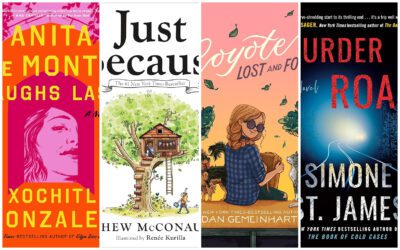[title subtitle=”review: Marla Cantrell”][/title]
By Sheryl Sandberg and Adam Grant | Knopf, 226 pages | $26
The hope of Option B: Facing Adversity, Building Resilience, and Finding Joy rests in these sen-tences: “But just as grief crashes into us like a wave, it also rolls back like the tide. We are left not just standing, but in some ways stronger. Option B still gives us options. We can still love … and we can still find joy.”
These words were written by Sheryl Sandberg, COO of Facebook, two years after her husband died while they were on vacation in Mexico. Dave Goldberg was on the treadmill when his heart failed. Sheryl was knocked to her knees by the loss. But as a mother of two, her grief was only part of the battle. She had to fly home and tell her young son and daughter, ages seven and eleven, that they’d lost their father.
What she wanted more than anything was for Dave to come back, to roll back time until everything was normal again. That was her Option A. But a friend told her that even though that wasn’t a possibility, there was Option B, an alternate life that would be heartbreaking to navigate, but with help from family and friends, possible.
One of the people Sheryl reached out to was her friend, Adam Grant, who is also a psychologist. She needed advice, fearing for her children, wondering if such a great loss at such an early age would devastate them. With his help, she worked on strategies. She posted family rules above her kids’ cubbies that included “respect our feelings.” Whenever they felt overwhelmed, it was OK to cry, even if that meant leaving their classes to do so. At night, when they sat down to eat, they talked about things they were grateful for, even in the midst of so much sorrow.
Sheryl returned to work as soon as she could. She was shrouded in grief, and sometimes in meetings she would cry, or feel as if her contributions were off. But then she’d hear something positive, like Mark Zuckerberg telling her that her input mattered.
During this time, journaling helped sort out her feelings. Sometimes it was as simple as writing down a few things she’d done well that day. In the beginning, that was something as simple as making a cup of tea. There is psychology behind the practice. People who acknowledge even small wins build confidence.
She found that most of us are not equipped for either side of grief. Those experiencing it are in a complicated maze. Those wanting to help don’t know what to do. Goodhearted people ask, “What can I do?” which puts the burden on the one grieving. Sheryl says you should just show up. Bring food. Call. Do something to show you care.
In a recent talk, she said that not only is there post-traumatic stress, there’s also post-traumatic growth, a truth that is amazing to consider. It’s something you don’t hear a lot about, the lessons learned through the universal experience of love and loss. It may be one of the most important lessons we’ll ever learn, even though we all hope we’ll never get called to that classroom.



